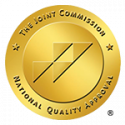In this blog, we’ll talk about mindfulness-based outpatient drug treatment. Mindfulness-Based Therapy is an effective way to help an individual recover from addiction. It helps struggling individuals cope with their emotions, reduces stress, creates more space for dealing with life’s issues, and prevents relapse. Read on to learn more.
What is Mindfulness-based Treatment?
Mindfulness is a form of meditation in which an individual will focus on being aware and present about what they’re feeling and experiencing at the moment. Mindfulness involves techniques such as deep breathing, guided meditation, and others meant to relax the mind.
Clients often worry about things during addiction recovery. Some individuals have underlying problems that need to be addressed, while others are overly concerned with things they don’t know about yet.
Mindfulness-based treatment starts with the acceptance of the present moment. It is about acknowledging what is happening minute by minute, recognizing it, and choosing to progress anyway. This mindset can be beneficial for those who internalize stress or turn to substance use when things become overwhelming.
Addiction develops out of a variety of underlying thoughts and feelings. It’s essential to learn how to recognize addictions and accept them instead of ignoring or suppressing them, which is why mindfulness-based therapy can be helpful. Mindfulness therapy aims to help addicts reframe their thoughts and learn how to replace their substance use with healthy coping skills.
Meditation and mindfulness exercises also help you develop skills for managing and controlling your stress, promoting relaxation and positive moods. Mindfulness exercises can help improve the effectiveness of evidence-based treatments, including cognitive-behavioral therapy (CBT) and dialectical behavior therapy (DBT). Low impact workouts like yoga can help reduce pain and help you maintain good posture, balance, and overall health.
How Mindfulness-based Therapy Helps With Addiction
Slowing things down helps people feel calmer, so they’re not rushing from one activity to the next or even one thought or feeling to the next. By quieting the mind, you can achieve a state of tranquility; that is usually why people choose to use drugs like alcohol, marijuana, and opioids.
Mindfulness-based therapies can help you understand your reactions to deal with them effectively. By understanding your reactions, you find that you can let things go that might otherwise have caused you distress. Often, individuals come to realize things about themselves and their triggers for drinking, using drugs, or engaging in other addictive behaviors, making it easier to respond differently later.
Benefits of Mindfulness-Based Therapies in Addiction Treatment
The National Institute for Health and Care Excellence (NICE) recommends using Mindfulness-Based Cognitive Therapy to treat individuals who suffer from mental health disorders or substance abuse disorders. Research has also shown it is a highly effective treatment for substance use disorders.
Mindfulness-based cognitive therapy is very beneficial in conjunction with substance abuse treatment in the following ways:
Reinforces relapse prevention – Many individuals who suffer from substance addiction disorders also struggle with chronic anxiety and depression. During treatment for both the depression and the addictions, the client can learn to distinguish between the depression and the addiction and become mindful of their ability to overcome depression in rehab centers in Montgomery County, PA.
It helps people manage their feelings of anxiety – Several studies have shown that using Mindfulness-Based Cognitive Therapy (MBCT) decreases anxiety and improves sleep quality. Mindfulness-based Cognitive Therapy (MBCT) helps people reduce stress levels by teaching them to identify their anxiety as negative thoughts rather than predictive facts. Thus, it reduces negative thoughts’ power over an individual’s life. Start by contacting our team today to learn more about programs located in Camden County, New Jersey, and Montgomery County, Pennsylvania.
Supports trauma recovery – Research has shown that mindfulness-based cognitive therapy is an effective and highly beneficial therapeutic tool for treating Substance Abuse Disorders. Combining mindfulness-based cognitive therapy (MBCT) with other evidence-based treatments, programs like Sobriety Solutions of New Jersey Program can help individuals suffering from substance use disorders.
How can Mindfulness-Based Life Skills improve your day-to-day life?
Sobriety Solution’s Mindfulness-Based Program offers mindfulness-based therapy interventions and other clinical services promoting recovery growth and preventing relapse in addictive disorders that integrate mindfulness meditation with standard relapse prevention practices.
These services include:
- Mindfulness-based relapse prevention
- Mindfulness-based stress reduction
- Yoga
- Coping skills training for specific substance use and mental health disorders
- All clients will be assessed in career/education, family dynamics, and trauma, driving chosen treatment interventions.
- All groups will focus on an aspect of life that challenges newly sober people.
- Solution-focused therapy will assist clients in transitioning back into work, school, and family life.
- Sessions will be more exploratory for younger clients searching for a sense of purpose and meaning in early recovery.
- Ancillary services will assist clients in resume building, interview skills, and temporary to full-time job placement.
Mindfulness-based outpatient treatment programs help to promote recovery through learning new coping skills to help overcome life’s challenges that we may face. At Sobriety Solutions, mindfulness-based therapy is just one part of our comprehensive approach to treating addiction. Contact us today at 833.349.2009 if you or a loved one are struggling with addiction and would like to learn more about the various treatment options available.









